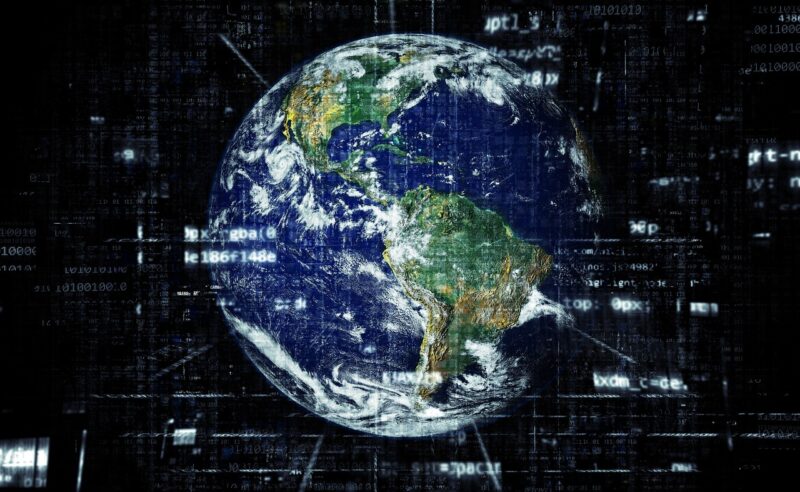The Internet Chronicles: How Digital Pioneers Transformed Our Lives
November 18, 2024

The story of the internet is one of revolution and transformation, an ongoing tale written by countless individuals and collective efforts across the globe. The digital age, which has completely reshaped how we communicate, learn, work, and entertain ourselves, has its roots in the inventions and innovations of a few key pioneers. This article explores how their groundbreaking work has led us to the interconnected world we inhabit today.
1. The Birth of the Internet
The origins of the internet date back to the 1960s when the U.S. Department of Defense commissioned the ARPANET project to facilitate communication between researchers and military personnel. This network was the precursor to what we now know as the internet, allowing multiple computers to connect and communicate with each other. The first message sent over ARPANET was a simple “LOGIN,” but it would eventually lay the groundwork for the digital communication we rely on today.
As ARPANET evolved into a more extensive network throughout the 1970s and 1980s, key developments like packet switching, TCP/IP protocols, and email emerged. Notable figures such as Vint Cerf and Robert Kahn worked tirelessly to develop key concepts and protocols that enabled data to be efficiently transmitted across networks. Their efforts were instrumental in setting the stage for the internet’s commercialization in the early 1990s.
2. The World Wide Web: A Game Changer
While the early internet was primarily used by researchers and academics, the invention of the World Wide Web by Tim Berners-Lee in 1991 vastly expanded its potential. Berners-Lee developed the first web browser and introduced concepts like hyperlinks and URLs, allowing users to navigate and access information seamlessly. This innovation meant that anyone with a computer and internet access could explore the wealth of knowledge available online.
The launch of the first popular graphical web browser, Mosaic, in 1993 marked the beginning of widespread internet adoption. Businesses quickly recognized the potential for marketing and sales online, leading to the birth of e-commerce and the dot-com boom of the late 1990s.
3. Social Media Revolution
As the internet matured, it gave birth to social media platforms that revolutionized how we connect and share our lives. Platforms like Friendster, MySpace, and ultimately Facebook introduced us to a new form of digital communication, enabling users to interact, share, and create communities without geographical limitations.
Mark Zuckerberg’s creation of Facebook in 2004 took social networking to new heights, accumulating billions of users and fundamentally changing how we view friendships, relationships, and social dynamics. Other platforms like Twitter, Instagram, and Snapchat followed suit, each with its distinct approach to connectivity and expression. The implications of these innovations are profound, as they not only changed individual social interactions but also influenced politics, marketing, and even social movements around the world.
4. The Rise of Mobile Technology
With the advent of smartphones and mobile Internet in the late 2000s, the way we interact with the internet transformed once again. Companies like Apple and Google led the charge with the introduction of the iPhone and Android systems, respectively, making the internet accessible anytime and anywhere.
The mobile revolution opened up new avenues for communication, entertainment, and productivity. Applications (apps) became an integral part of our daily lives, enabling everything from social interactions to online shopping and navigation. This transition to mobile technology not only changed how we consume information but also how businesses operate, leading to a significant shift in marketing strategies toward mobile-centric approaches.
5. The Impact on Modern Life
Today, the internet is woven into the fabric of our everyday lives. It facilitates instant communication through emails, messaging apps, and video conferencing platforms, bridging distances that once seemed insurmountable. Education has also transformed, with online learning platforms and e-learning modules making education accessible to millions around the globe.
Moreover, the influence of the internet on major industries, from healthcare to finance, cannot be overstated. Telemedicine, online banking, and e-commerce are just a few examples of how digital transformation has improved convenience and efficiency in various sectors.
However, this incredible connectivity also brings challenges, such as privacy concerns, cyberbullying, and the pervasive spread of misinformation. As digital citizens, it is essential that we navigate the internet mindfully, balancing the benefits with the potential risks that come with it.
6. The Future of the Internet
As we look ahead, the potential of the internet continues to expand. Concepts like the Internet of Things (IoT), artificial intelligence, and blockchain technology promise to reshape industries and create new opportunities. The future might see more interconnected devices in our homes, smarter cities, and increased reliance on digital platforms for everyday activities.
Moreover, as society adapts to possible advancements in virtual reality (VR) and augmented reality (AR), our experience of the digital world could become even more immersive and interactive.
Ultimately, the internet remains a testament to human innovation and progress. The digital pioneers who propelled us into this era laid the foundation for a world that is constantly evolving and interconnected—a world where the possibilities seem limitless.
Conclusion
The narrative of the internet is one filled with creativity and technological breakthrough, marked by the tireless efforts of those who believed in the power of connectivity. From its humble beginnings to the vast network we now navigate every day, the internet reflects our shared history and our communal future. As we continue to innovate, we should also aim to leverage these digital advancements responsibly, ensuring that the internet remains a beneficial space for all.
Let us celebrate the digital pioneers who have transformed our lives and remain open to the exciting possibilities that lie ahead in this remarkable journey through the internet chronicles.







